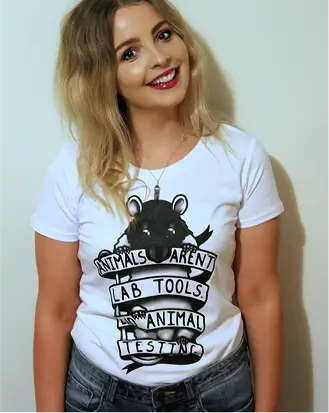Why we work to end animal experimentation
Advancing Science Without Animals
NZAVS provides funding towards research and teaching that replaces the use of animals with modern, human‑relevant methods.
The W.E. Bradshaw University Innovation Grant is one example of a grant we provide that empowers universities and polytechnics to trial, adopt, and scale animal‑free approaches across Aotearoa.
If you are a researcher wanting to apply for or find out more about the grant, please click here.
How the funding works
The 2025 grant is fully funded thanks to a generous legacy gift left by a supporter in their will. This act of kindness ensures their passion for animal rights lives on, sparking innovation and creating lasting change in science, education and research.
The grant provides up to NZ$50,000 funding for accredited New Zealand universities and polytechnics. Funding can be used to implement or expand animal-free methods, such as virtual dissection software, organ-on-a-chip technology, human-based lab models, or other innovative tools. Funding may also be used for animal replacement models for teaching purposes. Priority is given to projects that create long-term impact, such as curriculum redesign or institutional policies that permanently phase out animal use.
Why we fund animal‑replacement research
After decades of advocacy to end harmful animal use, we’re also investing directly where change happens, so animal use is no longer the default in science.
- Better for humans and animals
Methods like advanced imaging, in‑silico modelling, 3D tissues and organ‑on‑a‑chip aim to be more predictive for human health while sparing animals. - Real change from the inside
We support departments to replace animal‑based teaching and research with validated, human‑relevant approaches. - Catalytic impact
One well‑designed project can seed modules, protocols, and habits that reduce animal use year after year.
Our goals for the future
At NZAVS, we have a bold vision for the future: a world where no animal is ever harmed for the sake of teaching, research, or science in New Zealand
Our dream is innovative & powerful: we want to build a fund big enough that any researcher, teacher, university student, or lecturer in Aotearoa who wants to use animal-free methods can come to us for support. Whether it’s funding a new piece of animal-free technology, developing animal-free teaching materials, or backing innovative research projects, we want to be able to say without hesitation “yes, we can help.”
To make this possible, we’re working to create a sustainable pool of funding we can always draw from to support projects that replace animal use in science. This way, we’re not just making one-off changes - we’re building a permanent solution that ends the reliance on harmful animal methods for good.





